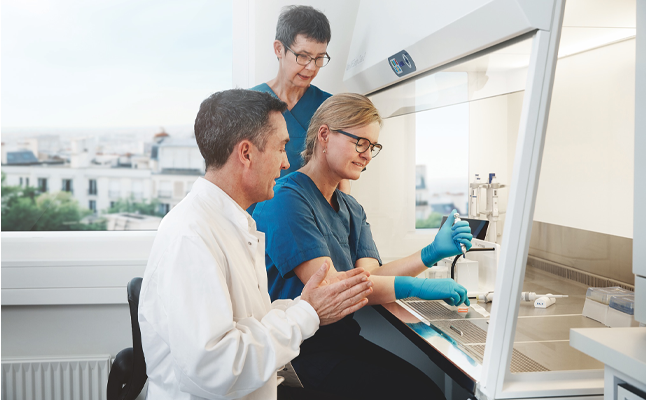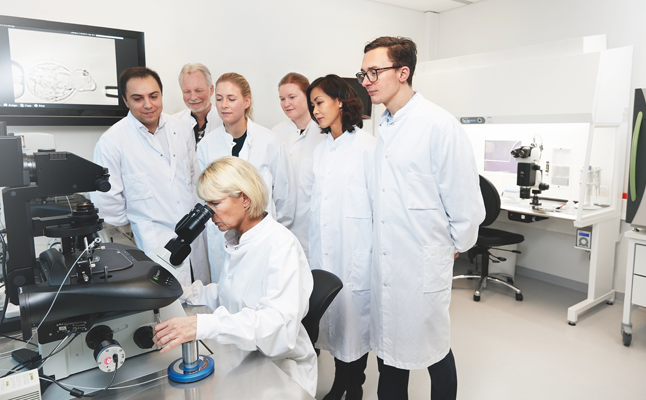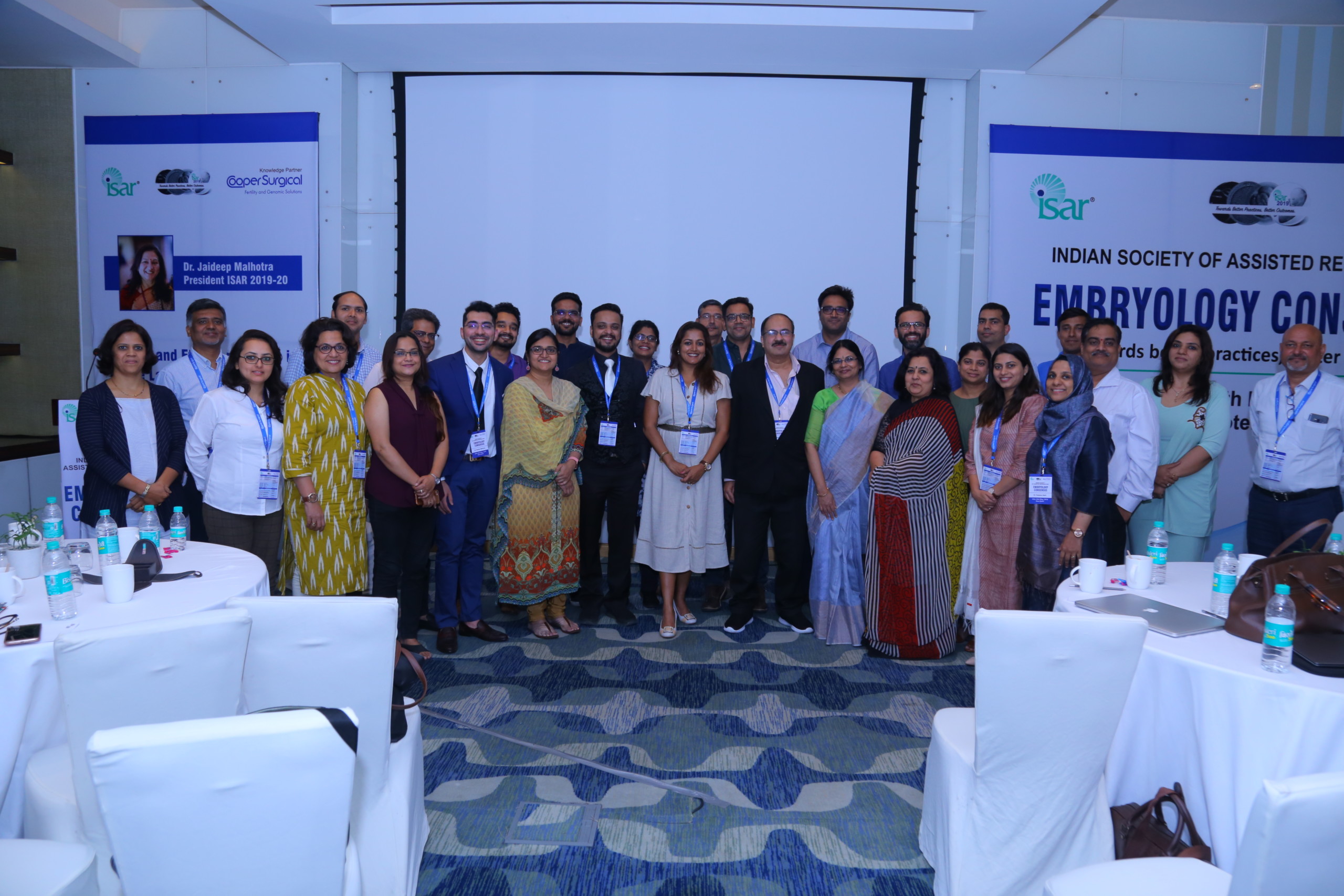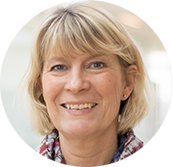How education and training
focused on data utilization can
improve fertility outcomes

How education and training focused on data utilization can improve fertility outcomes
By Inge Errebo Agerholm PhD
Senior Director Medical Affairs International, CooperSurgical
As the field of fertility care continues to grow, technological advances and processes are being introduced into clinics to help optimize outcomes. These processes give access to copious amounts of data and so can yield a wealth of information pertaining to a clinic’s performance. In this article, Inge Errebo Agerholm discusses her team’s role in helping clinics utilize this data to troubleshoot and improve laboratory practices and how a future that is focused on data utilization for education and training is essential in changing the standards of fertility care.
Inge Errebo Agerholm, Senior Director Medical Affairs International, together with her global team, provide problem-solving, educational support and scientific communication to IVF labs around the world. Inge and her highly experienced staff of five clinical embryologists each have over 20 years of IVF lab experience and rely on evidence-based procedures and best practices for the education and training of lab practitioners.
For IVF laboratories, there are two areas in which we believe we can help optimize fertility outcomes: data utilization and the standardization of procedures. These two areas actually work hand-in-hand. Throughout the IVF process, labs collect important data that gives a comprehensive overview of their performance. These insights can help standardize a lab’s processes including workflow, and so contribute to improving lab performance and positively impacting fertility outcomes.
“…with varied operational and educational requirements in different countries, our goal of standardized procedures and protocols becomes a challenge.”
Since our role is clearly defined in offering education, knowledge-sharing and advice to clinics, collating the most information for any issue is vital. However, with varied operational and educational requirements in different countries, our goal of standardized procedures and protocols becomes a challenge.
A wealth of data already in clinics
When a clinic requests our support, we start by referring to their KPI (Key Performance Indicator) data. This not only helps us get a better overview of their processes but also raises the question of what data they are using and what data are missing that could help improve insights into their clinic. Data are crucial – if you don’t have the data, you don’t have any KPIs.
Through KPI data collection, clinics have the opportunity not only to measure their overall performance but also to evaluate laboratory and clinicians’ performances. For example, when changing or optimizing a procedure, it is essential to have data to measure the impact on workflow and, more importantly, outcomes.

“I see data collection as an opportunity to step towards more transparency in fertility care for the benefit of everyone working in clinics – lab practitioners, clinicians, nurses and clinic managers.”
I see data collection as an opportunity to step towards more transparency in fertility care for the benefit of everyone working in clinics – lab practitioners, clinicians, nurses and clinic managers. Through educational support and training, we can help clinics focus on the best KPIs and give guidance on how to implement international guidelines for GLP (Good Laboratory Practice).
The role of education and training in standardization
Our work has us traveling the world and we are ready to share the knowledge and experience we have accumulated. We can advise on workflow, procedures and how to ensure that equipment is fit-for-purpose and properly validated. We also use our knowledge in our hands-on and virtual training, focusing on standardization of procedures, and highlight the importance of data to measure and keep the quality high.

“We can advise on workflow, procedures and how to ensure that equipment is fit-for-purpose and properly validated.”
In the future, to advance our training options for embryologists and medical doctors, we see VR (Virtual Reality) to practice the first steps in a procedure as a very promising way of learning
The bearer of new evidence
As new evidence appears, it can be difficult for clinics to have the time to read every research article and keep abreast of new trends. We try to help by providing evidence-based information through educational materials. We offer a newsletter for easy access to different topics with references if they want to go into more depth. Our podcasts cover both sides of the clinic, with conversations between clinicians and lab practitioners on current issues, and our educational webinars and journal club series give insights to new trends.
Currently, we are excited about some new podcasts we are working on to give more practical information and, in the future, we want to involve more key opinion leaders and specialists as a way for us to reach a broader audience in fertility care.
“At CooperSurgical, we believe that changing the standards of fertility care means all clinics having access to the latest best practices.”
At CooperSurgical, we believe that changing the standards of fertility care means all clinics having access to the latest best practices. This starts with data. I believe self-evaluation is a necessity for clinics to be competitive and breed improvement for their own training and performance. But to see real change in the fertility industry, data sharing with other clinics and other countries will help us to create a standardization based on a global database of information. Data not only based on success rates or individual procedures but also other metrics that can add value to the clinic’s performance that may currently be overlooked.
“When it comes to fertility care, I think it’s good to dream big.”
Data utilization can also help in our training and education sessions. We could use clinic data for more specific and personalized training for staff. Combined with simulator training, we would be able to see the practitioners’ training data and give real-time feedback. This type of training along with more AI(Artificial Intelligence) technology, like VR, can also be very beneficial for skills training in more remote areas.
When it comes to fertility care, I think it’s good to dream big. I see the future of fertility training and education focused on learning and sharing data between disciplines: a holistic approach that involves cross-collaborations between clinicians, embryologists, nurses and management. There’s a lot to be learned through the whole patient journey and the data is there for us. Why not use everything available to us so that clinics can continue to positively impact patients’ lives?

 My Clinic is in the United States
My Clinic is in the United States My Clinic is in Canada
My Clinic is in Canada

